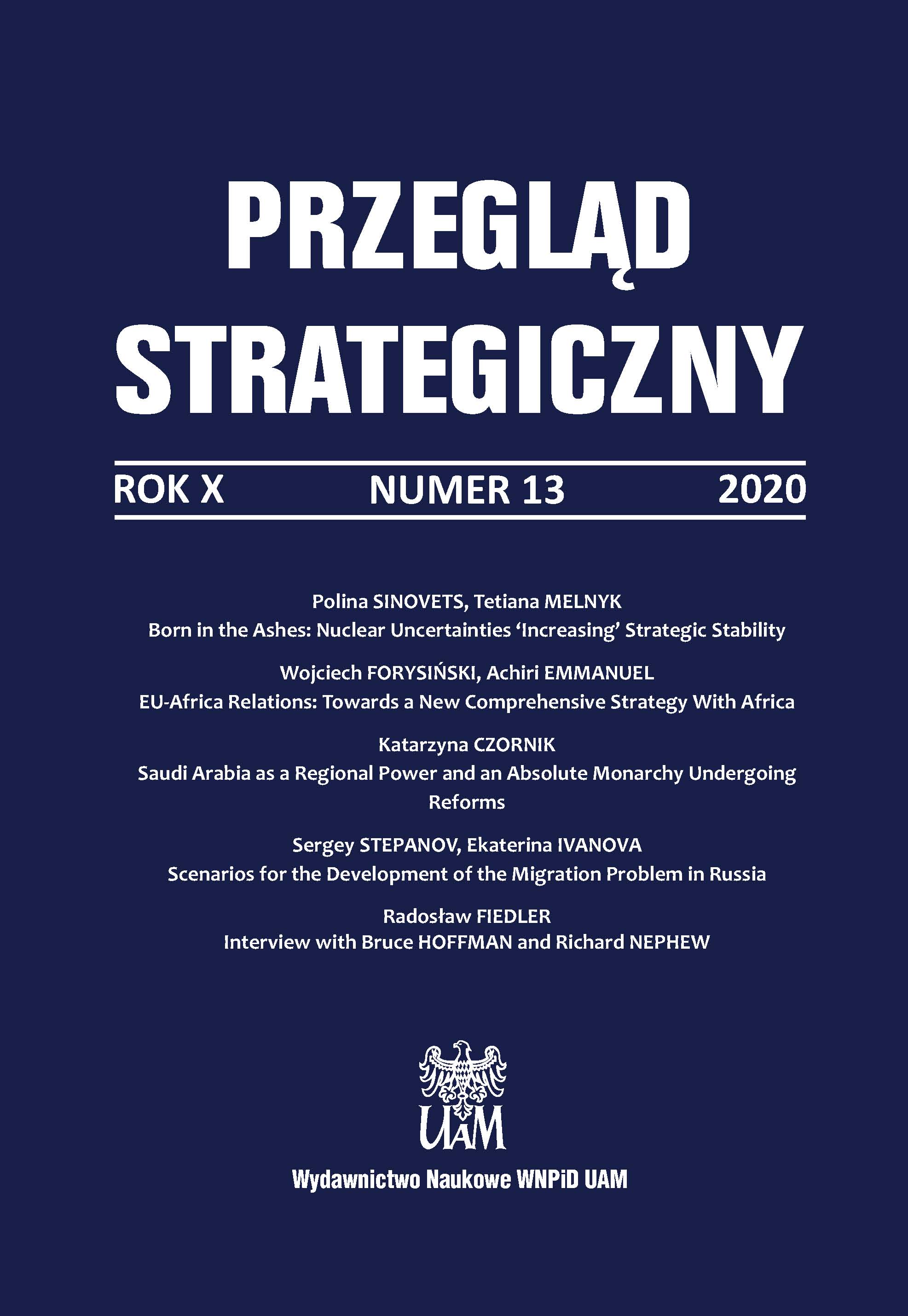Decentralization vs Centralization: Scenarios of Regional Development of Ukraine in the Context of Internal Stability Establishment
Decentralization vs Centralization: Scenarios of Regional Development of Ukraine in the Context of Internal Stability Establishment
Author(s): Yuliia Uzun, Svetlana KochSubject(s): Politics
Published by: Uniwersytet Adama Mickiewicza
Keywords: decentralization; centralism; regionalism; self-government; Ukraine
Summary/Abstract: The work aims to analyze scenarios for the development of regional policy in Ukraine in conditions of decentralization and centralization trends confrontation in the country. The main problem is the establishment of structural completeness of the decentralization reform in Ukraine, which should involve the implementation of administrative-territorial, budgetary and political decentralization. An important task is also to determine the effectiveness of devolution, delegation, deconcentration, deregulation, and divestment, which are manifestations of the decentralization process and collectively determine the quality of reform. Based on the methodology of system analysis and the concept of “balance of relations,” as well as using a historical and comparative method in investigating the improvement of approaches to leading public policy, and a structural-functional method for analysis of territorial-political system as a decentralized and multi-level, the paper proposes an analysis of the balance of inter-level relations in the country, the effectiveness of reforms, decentralization and trends for further development. The work indicates that since 2014, administrative and territorial optimization and enlargement of communities have become the main result of the decentralization reform. The discussion of political decentralization remains extremely disturbing and is blocked as “separatism,” as well as attempts to resolve the conflict in the Donbas by political means through the adoption of the Steinmeier Formula are demurred as “capitulation.” The economic crisis, which coincided with the pandemic, can aggravate the negative perception of reform, the development of which remains possible within the framework of three development scenarios: “Euro-optimistic,” “inertial” and “blocking.”
Journal: Przegląd Strategiczny
- Issue Year: X/2020
- Issue No: 13
- Page Range: 243-262
- Page Count: 20
- Language: English

